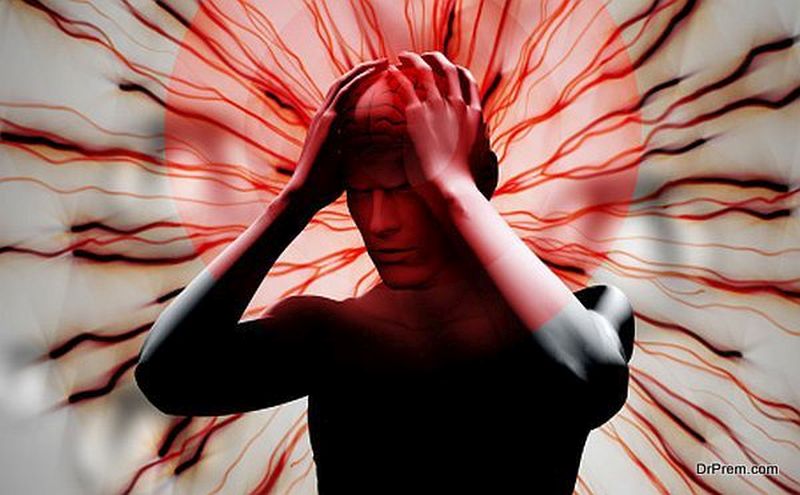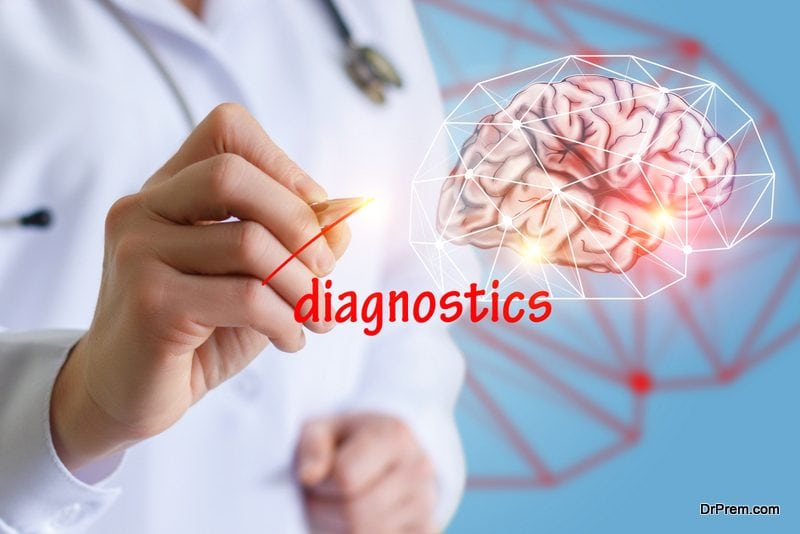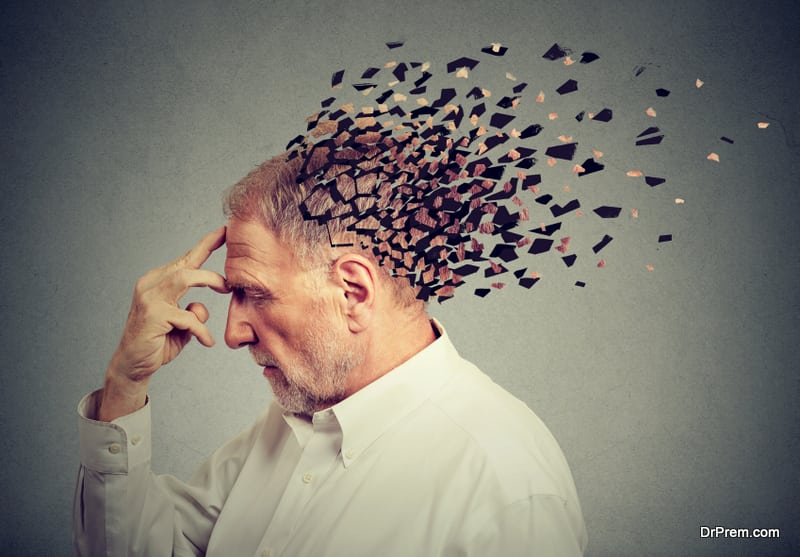Memories are like small windows into our past. They help us to remember and cherish the good times and learn and grow from the bad. But what happens when you can’t remember your past? When your memory begins to slowly fade or you lose it completely? There are various degrees of memory loss that occur for a variety of reasons. Read on to discover the different types, causes, and conditions of both short-term and long-term memory loss.
Types of Memory Loss
 There are several different conditions that impact a person’s ability to remember certain portions of their lives. These can occur at different times for different reasons and are accompanied by varying levels of symptoms. The two most common conditions that affect a person’s memory are amnesia and dementia. The different types of amnesia are as follows.
There are several different conditions that impact a person’s ability to remember certain portions of their lives. These can occur at different times for different reasons and are accompanied by varying levels of symptoms. The two most common conditions that affect a person’s memory are amnesia and dementia. The different types of amnesia are as follows.
- Amnestic syndrome
- Transient global amnesia
- Anterograde amnesia
- Dissociative/Psychogenic amnesia
Some forms of amnesia are short-term, while others impair a person’s memory for life and may even impact their inability to remember future events. Amnesia is often caused by an underlying condition or injury.
Dementia, on the other hand, is associated primarily with the aging process. Dementia often impacts older individuals and may require enrolment in a memory care facility if their care becomes too much for family and friends. Many different conditions fall under the umbrella of dementia including, but not limited to, the following:
- Alzheimer’s disease
- Parkinson’s disease
- Creutzfeldt-Jakob disease
Let’s take a closer look at each of these conditions.
Amnesia
Amnestic Syndrome

Individuals suffering from this form of amnesia are well-aware that they have the condition. Amnestic syndrome impairs a person’s ability to remember personal information, certain facts, events, and experiences. Moving forward, it may also be difficult for a person to remember new events and information. On a positive note, amnestic syndrome doesn’t generally impact language, judgment, or personality. Amnestic syndrome can result from a traumatic injury, alcohol or drug abuse, and tumors or hemorrhages in the brain.
Transient Global Amnesia
Transient global amnesia is when a patient suffers from complete and sudden memory loss. Although they are able to identify themselves, their surroundings, and loved ones, they cannot recall recent events such as where they are or how they got there. For some people, transient global amnesia can also impact recent memories, such as what happened last week, last month, or even last year. There is no known cause for this temporary, sudden memory loss. Most often, complete memory loss is the result of a neurological event such as a stroke, injury or seizure. When someone suffers complete memory loss without having experienced one of these events, it’s known as transient global amnesia. Most often, a person’s memory loss is brief and once the episode is over, the person’s memory returns to normal.
Anterograde Amnesia
This type of amnesia affects a person’s memory of the recent past but not the distant past. This means those suffering from anterograde amnesia may have a difficult time learning new things, retaining new information and forming new memories. Anterograde amnesia is often the result of a traumatic injury to the brain.
Dissociative/Psychogenic Amnesia
These types of amnesia can actually be brought on by extreme stress or an emotionally traumatic event. Although this type of amnesia does not last long, it can be extremely frightening for the patient and friends and family. When someone suffers dissociative or psychogenic amnesia they are no longer aware of who they are and are unable to recognize or recall the names and identities of family and loved ones.
Dementia
 Dementia is a common occurrence among older individuals. Dementia impairs a person’s ability to perform everyday tasks because it affects not only memory but also judgment, awareness, cognitive skills, and language. Many elderly people suffering from some form of dementia need care in order to function. Several different disorders are associated with this type of memory loss. Here are just a few.
Dementia is a common occurrence among older individuals. Dementia impairs a person’s ability to perform everyday tasks because it affects not only memory but also judgment, awareness, cognitive skills, and language. Many elderly people suffering from some form of dementia need care in order to function. Several different disorders are associated with this type of memory loss. Here are just a few.
Alzheimer’s Disease
This is the most common disease associated with dementia. Nearly 5.7 million people suffer from Alzheimer’s disease and symptoms get progressively worse over time. Although most Alzheimer’s sufferers are over the age of 65, there are still thousands of individuals under this age that suffer from this disease. Alzheimer’s disease is marked by several symptoms, which will eventually worsen with time. These include the inability to retain new and recent information, changes in mood and behavior, confusion, and difficulty speaking, swallowing, and walking. Life expectancy following diagnosis is anywhere between 8 and 20 years based on the severity of symptoms.
Parkinson’s Disease
 Parkinson’s disease is a neurodegenerative disorder that has a long list of physical and mental symptoms that vary from person to person. Most of these symptoms inhibit movement but when a Parkinson’s patient experiences tremors, these can lead to cognitive issues, including memory loss and dementia. Other symptoms of Parkinson’s disease include:
Parkinson’s disease is a neurodegenerative disorder that has a long list of physical and mental symptoms that vary from person to person. Most of these symptoms inhibit movement but when a Parkinson’s patient experiences tremors, these can lead to cognitive issues, including memory loss and dementia. Other symptoms of Parkinson’s disease include:
- Loss of smell
- Trouble sleeping
- Trouble moving around
- Dizziness/Fainting
- Inability to stand straight
Creutzfeldt-Jakob Disease
Creutzfeldt-Jakob disease is an extremely dangerous degenerative brain disorder that results in memory loss and eventually, death. This type of dementia is rare, affecting only 1 in 1 million people per year, worldwide. The symptoms of this disease are very similar to other forms of dementia and include changes in behavior and demeanor, memory loss, impaired vision and coordination. The difference with this type of dementia is that it is fatal and patient’s health fails rapidly.
Most individuals are diagnosed after the age of 60 and are dead within a year. Creutzfeldt-Jakob disease is caused by a protein abnormality in the brain. This protein is known as a prion and is responsible for transmitting messages between brain cells. When these infectious or unused prions are not recycled naturally by the body, they can build up in the brain and potentially cause Creutzfeldt-Jakob disease.
Recognize Symptoms

Memory loss can be a scary thing, both for the individual experiencing it and those around them. When cognitive function is impaired, it’s important to seek medical attention immediately. Doctors will determine the cause or origin of the memory loss, which will then help with diagnosis and treatment. Most memory loss is short-term and sufferers recover and live a full, happy life. In extreme cases, or situations where memory loss is caused by dementia, patients may never recover.
Article Submitted By Community Writer




